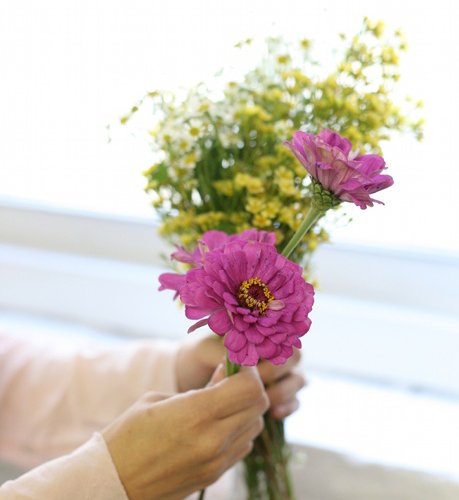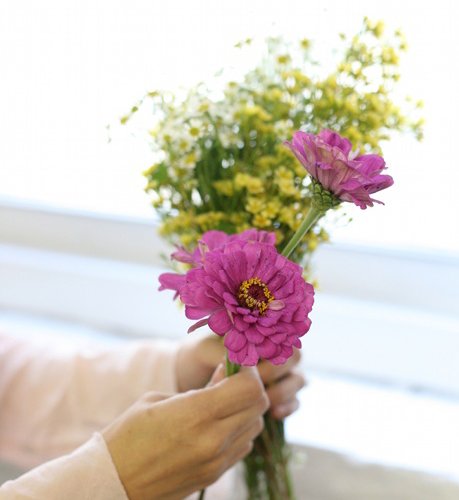
Coping on Mothers’ Day
In the lead up to Mothers’ Day, the emptiness and pain that arises for someone who has lost their mother, and for mothers' who have lost a child, can make Mothers’ Day a day to dread and avoid rather than cherish.
And it’s not only those who have experienced death who are coping with grief on Mother’s Day, grief extends to other circumstances too, an estranged parent, a painful childhood, and other life changes and challenges. We have another article specifically about the loss of an infant or child, you may want to read for more guidance also.
When friends and relatives are talking about what to buy their mother or how they will spend the day with her and when advertising campaigns are so focused on mothers and the relationship between mother and child, the pain of what is missing may be overwhelming…yet it is also an opportunity for something else to grow.
Below are some ideas for coping with grief on Mother’s Day and how to help yourself heal and move through the loss in your life.
You may find some of these tips helpful, or you may discover some of your own, please feel free to share your coping strategies in the comments.
Be a mother to yourself.
Mothers tune into what we need without us asking. They know when we are tired, hungry, sad, lonely or happy. Be that for yourself today. Listen to yourself and ask what it is you need to feel to better. Reach out to others, or help yourself, to get the love and support you need.
Your experience of having or being a mother may not be ideal, often things in life rarely are, so depending on your own experience of motherhood, how can you treat yourself in a way that might honour that relationship?
Take action.
You may wish to do something productive with your feelings of anger or the loneliness of loss. The Women in Super Mothers’ Day Classic is a great example of a way to release this energy and connect with others. As Australia’s biggest breast cancer research fundraiser, the fun run is held around Australia to support the National Breast Cancer Foundation. Many participants run as they too have lost a love one, which turns the run into a community event that really connects people. Through running or walking we can use the pain to make a difference and not just sit with it alone at home.
If running is not for you, you might want to donate to a charity, particularly if the cause is close to home, be it the cause of death, a passion of your mother’s, or simply something you care about.
Below are some popular options, but you can choose any you’d like, just make sure they are a registered charity. These organisations also provide resources you may be able to access if you feel the need.
McGrath Foundation
Mummy’s Wish
Catherine House
Bears of Hope
Compassionate Friends Victoria
Sands
Connect with others.
Some people have friends, and most often family, who are in the same situation; they too have lost their mother, grandmother or child and gather together on Mothers’ Day to support one another, to remember their loved ones, and to celebrate themselves.
Another idea is to reach out and tell someone you trust and feel close to exactly how you are feeling; see if you can get that hug, a listening ear, or sense of warmth that mothers so often provide.
If you’re looking for support and connection outside of your circle, Motherless Daughters is an organisation that aims to help women who have lost their mother with events, support programs, and research initiatives.
While navigating the loss of a mother is an undoubtedly painful experience, it needn’t be a lonely one.
Having people that understand where you’re coming from and can relate to how you’re feeling can be a monumental help when it comes to coping, on Mother’s Day and through every day of the year.
 Take a moment.
Take a moment.
Take even a single moment to reflect on your relationship; propose a toast to your mother, have a conversation about her or visit her graveside.
You could take a moment to reflect, to scatter flowers or petals in a place she loved most, write her a note you wish she would read or revisit family photos. What is it you miss most about them? Remembering and looking through photos of your mother, or your child, can help you to feel connected and feel close to them once more.
For some of you, the loss may not be a death, but rather an absence. The feeling of loss may stem from never having a mother there for you; you may have been raised by your father or grandmother, or raised by your mother who was not as nurturing as you hoped she would be. Not all mothers’ mother. If your mother is alive but absent, a visit or a phone call with them may make a difference. They may not be physically present but the act of reaching out and connecting, remembering all that they gave you can let them inspire the best in us still.
If you’re estranged or your relationship with your mother is complicated, you could ignore the day altogether, treat yourself with a night out or a spa day, or go see a movie.
Another option would be to celebrate the people in your life who have cared for you and have supported you by buying them a gift or writing them a letter. If not all mother’s mother, than it can also be said that it doesn’t only take mothers to mother. Use this day to say thanks to whoever it is that has support you throughout your life, or someone who simply makes your days a little nicer.
On Mothers’ Day we can all take the qualities of being a “mother” and make it a better day for everyone. Be able to listen, be compassionate, loving, nurturing, organised and eat well.
Be a mother to yourself and everyone on Mothers’ Day and as often as possible.




Comments